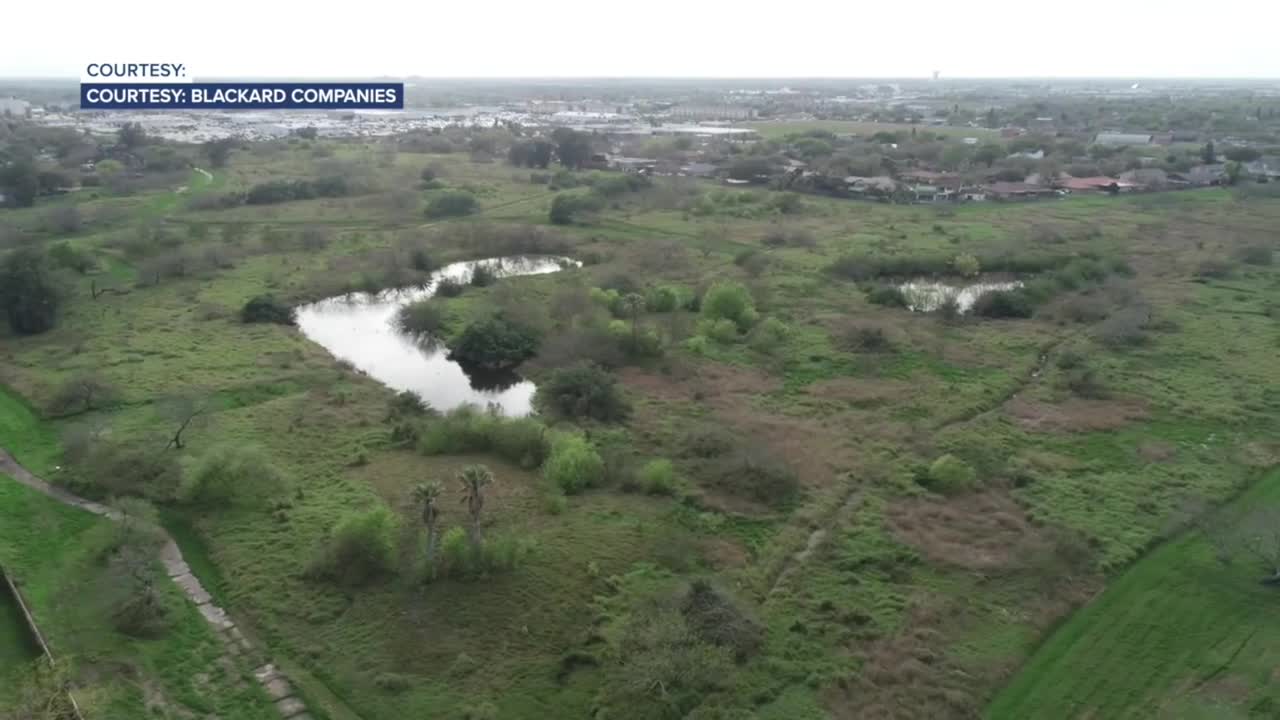Local advocates in the Corpus Christi community are raising concerns over the proposed Barisi Village development.
Sandra “Love” Sanchez, co-founder of the Indigenous Peoples of the Coastal Bend, said the project is slated to be built on indigenous burial grounds, one considered among the largest cemeteries in Texas.
The land, known historically as Cayo del Oso, stretches along Oso Bay near Ennis Joslin Road. Archaeologists have documented the site as a major burial ground for the Karankawa, Apache, Comanche, Tonkawa, and Coahuiltecan tribes. According to the Texas Historical Commission, sites like Cayo del Oso hold significant cultural value and fall under consultation guidelines when state or federal permits are involved.
“This area was burial sites for the Karankawa people. They buried their loved ones near the water,” Sanchez said.
She is calling for city leaders and the developer to consult with archaeologists before breaking ground and to include local tribal representatives throughout the project.
Dr. Peter Moore, a local historian, said the risk of uncovering human remains during construction is high.
“There’s a real likelihood that they’re going to encounter bones when they start digging for that project,” Moore said. “This is sacred to Indigenous people, and it should be sacred to all of us.”
Federal protections such as the National Historic Preservation Act require consultation with tribes for projects involving certain permits or funding. Additionally, the Native American Graves Protection and Repatriation Act requires remains and artifacts found on tribal or federal lands to be returned. Although the Barisi Village property is privately owned, advocates argue that a courtesy consultation is the least the community deserves.
“This area could become a Texas historical marker,” Sanchez said. “Let somebody from the Indigenous community, specifically from the Karankawa Tribe or Texas, be there onsite if this development happens.”
Jeffory Blackard, the developer of the project and owner of Blackard Companies, sent KRIS 6 News the following statement regarding Sanchez's concerns.
“We take cultural and historical preservation seriously at Blackard Companies. Our track record speaks for itself. We've voluntarily preserved and protected environmental and historical cultural assets across multiple developments, including our National Wetlands Preservation Award for coastal stewardship and our experience navigating culturally sensitive sites along the Gulf Coast. At Barisi Village, we're following all required assessment protocols and remain committed to responsible development. If any historical or cultural resources are identified through the proper review process, we'll handle them with the same care we've demonstrated in our other projects. We welcome community input through the established channels and will ensure all concerns are appropriately addressed. This project is about enhancing Corpus Christi while respecting what came before. That's not just good business - it's the right thing to do."
As the project moves forward, advocates continue to push for preservation and recognition of Oso Bay’s sacred history.
For the latest local news updates, click here, or download the KRIS 6 News App.
Catch all the KRIS 6 News stories and more on our YouTube page. Subscribe today!






